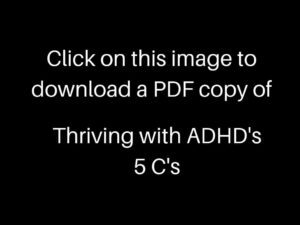
Proactively Parenting from an ADHD Perspective
As you would be aware, parenting a child with ADHD can be confusing, tiring and frustrating.
On any given day, our kids may struggle to get organised on time, require constant prompting, make impulsive decisions or poor choices, miss social cues, and have frequent emotional outbursts in response to seemingly insignificant problems. They can also appear irresponsible, self-centred and ungrateful, and create noisy chaos wherever they go.
As a result, it’s not uncommon for overwhelmed and exhausted parents to react to their child’s challenging behaviour with frustration, anger or resentment.
But yelling at our kids with ADHD, berating them, or issuing them with ultimatums or punishment in an attempt to change behaviour that is due to their underlying developmental delay is never going to achieve the results we want, as it does not help bridge the gap between their peer age and their executive function age or foster in them the knowledge and skills they need to do things differently.
Instead, it tends to make our kid’s behaviour even worse.
This is because parental anger and punishment is experienced by our highly sensitive kids as extremely painful and threatening, and therefore induces the fight or flight stress response. With the stress hormone cortisol surging through their bodies, their already deficient frontal cortex shuts down (the thinking part of the brain involved in self-regulation), which results in their behaviour and emotional response becoming even more dysregulated and challenging.
Over time, continued exposure to angry, threatening and painful messages, (especially when kids are trying to do their best), can negatively impact their self-esteem and self-worth and lead to toxic shame.
It can also lead to relationship breakdown, as in order to protect themselves, kids with ADHD may eventually stop listening to their parents and actively disengage from the parent-child relationship. In doing so, they may ignore parental expectations altogether and become increasingly vulnerable to the influence of their peers. They may also become more and more oppositional and defiant in nature.
By learning to proactively parent from an ADHD perspective, we can stop or prevent this anger induced downward spiral by learning to respond to our kids from a place of understanding, compassion and acceptance.
This is vital as when a child feels heard, valued, understood and appreciated they are more likely to act in a manner that meets our expectations (and societal expectations) in order to protect their relationship with us. They are also more likely to be receptive to redirection and appropriate discipline, as well as open to gaining the awareness and understanding they require to develop in a healthy manner and to one day manage their ADHD symptoms independently.
Additionally, proactive parenting can restore parent sanity and foster a child’s self-esteem and self-worth, as well as a postive parental-child relationship. It can also help parents create a happy, healthy home environment for all members of the family to enjoy.
Proactive Parenting
Proactively parenting from an ADHD perspective, involves:
- Fostering and maintaining a positive, supportive relationship with our kids (see Thriving with ADHD’s 5 C’s below).
- Really understanding ADHD and how it shows up in our kid’s life, including their unique gifts and individual challenges.
- Actively pre-empting situations which may lead to our kids having difficulty regulating their behaviour or emotions, so that we can collaboratively put in place supportive and preventative strategies to reduce negative outcomes.
- Supporting our kids so they can develop the knowledge and skills they require to manage their ADHD symptoms with increasing independence including structure and routines, organisation and problem-solving techniques, and emotional regulation and social skills.
- Developing reasonable and achievable rules and expectations with our kids and reinforcing positive behaviour with praise and incentives.
- Finding the balance between guiding our kids and fostering the practical skills that will enable them to one day confidently manage their ADHD independently.
The 5 C's
Thriving with ADHD’s 5 C’s is a framework parents can use to create and maintain a healthy relationship with their child with ADHD.
The 5 C’s are as follows:
Connection – focus on your relationship with your child first; spend one-on-one time with them; make them feel safe and valued; have fun together; give them your full attention; let them know you love them; focus on the positive; show respect and appreciation; honour their boundaries; keep them company during tasks that tax their executive function; support them to cope with their emotions.
Composure – be patient with your child; manage your own emotions; breath before responding; remind yourself that challenging behaviour is often due to lagging skills not disobedience; give directions in a calm, matter of fact manner; describe don’t judge; be a good role model.
Compassion – give your child your full attention and listen with empathy; aim to understand their point of view; listen to not only what they are saying but how they are saying it (as well as what they are not saying); acknowledge and validate; reserve judgement. Note: you can listen and understand without condoning behaviour.
Collaboration – provide the scaffolding that will ensure your child’s success; access the teachable moments that open up when the first 3 C’s are in place; use the coach approach; foster their strengths; identify lagging skills and put in place strategies to help them learn these skills; use diplomacy; give them a choice; involve them in any rule setting or decision making; explore options for resolving problems together; ask them what they think would help them; encourage problem solving; stay open to possibilities; provide motivating praise which qualifies the behaviour you are acknowledging and provide rewards as required. Remember the aim is to gradually reduce the need for externally imposed discipline by fostering internally imposed discipline or self-regulation.
Consistency – set and reflect rules and expectations; make clear requests of your child and keep your word; make sure they understand all the steps required to complete a task successfully; support them to achieve their goals; be flexible in your approach; promote responsibility; focus on outcomes; praise and reward positive behaviour; set clear and fair consequences for negative behaviour and act swiftly should you need to.
For additional information that can help you
proactively parent
from an ADHD perspective
please go here.





Add A Comment